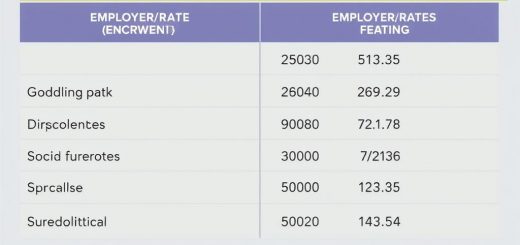VAT in Cyprus: Rates, Exemptions, and Your Obligations
Value Added Tax (VAT) plays a crucial role in Cyprus’s tax system, influencing businesses and consumers alike. As one of the member states of the European Union, Cyprus adheres to the EU VAT Directive, but it also maintains specific regulations that impact local practices. Understanding Cyprus VAT rates, value added tax Cyprus regulations, sales tax Cyprus distinctions, VAT exemptions Cyprus offers, and VAT obligations Cyprus requires is essential for anyone navigating the Cypriot market or operating within its borders. This comprehensive article delves into the technicalities and practical aspects of VAT in Cyprus, providing clarity on compliance and strategic implications.
The Basics of Cyprus VAT System
Value added tax in Cyprus functions as an indirect tax levied on the consumption of goods and services. It is charged at each stage of the supply chain where value is added, from production to final retail. Unlike direct taxes, VAT shifts the tax burden along the supply chain but is ultimately borne by the final consumer. The Cyprus VAT system aligns with the EU VAT framework, enabling cross-border consistency, but also contains distinct local rules affecting rates, registration, and exemptions.
VAT is collected by businesses and remitted to the tax authorities, necessitating clear record-keeping and reporting. The VAT system in Cyprus contributes significantly to government revenues, making it a vital element of fiscal policy. The concept of “self-assessment” places the onus on taxable persons to calculate and pay their VAT liabilities accurately, underlining the importance of understanding VAT obligations Cyprus law sets forth.
Understanding Cyprus VAT is essential for compliance and efficient business operations in this jurisdiction.
Cyprus VAT Rates Explained
Cyprus VAT rates are stratified depending on the type of goods or services involved. Cyprus implements the standard VAT rate alongside reduced rates designed to support specific sectors or social policies. The rates are designed to balance revenue needs with market competitiveness and social considerations.
| VAT Rate | Description | Examples |
|---|---|---|
| Standard Rate (19%) | This rate applies to most goods and services with no special exemptions. | Electronics, clothing, most professional services |
| Reduced Rate (9%) | Applied to specific goods and services to alleviate tax on socially important sectors. | Hotel accommodations, restaurant services, admissions to cultural events |
| Reduced Rate (5%) | Targets essential goods and services for social welfare purposes. | Pharmaceutical products, books, water supply |
The presence of multiple Cyprus VAT rates requires taxpayers to exercise precision in classification and invoicing. Misapplication of rates can lead to penalties and disputes with tax authorities. Additionally, businesses must be aware of frequent updates in VAT regulations, as Cyprus occasionally adjusts rates or categories to stay aligned with EU directives or economic policies.
The correct application of Cyprus VAT rates ensures legality and optimizes tax liabilities.
VAT Exemptions in Cyprus: What You Need to Know
VAT exemptions Cyprus provides reflect the government’s decision to exclude certain transactions from VAT to promote economic or social goals or due to the nature of the transactions involved. Exempt supplies do not attract VAT, but generally, suppliers cannot recover input VAT on costs related to exempt activities.
Common VAT exemptions Cyprus recognizes include financial services, education, health services, and real estate transactions in specific contexts. Each category comes with detailed criteria that determine its VAT treatment.
For example, financial services such as credit provision or insurance are exempt from VAT, acknowledging the distinctive nature of these sectors and the impracticality of taxing them effectively at the point of service.
Understanding VAT exemptions Cyprus offers aids in accurate VAT accounting and reduces unexpected tax burdens.
Key VAT Exemptions Cyprus Highlights
- Medical and dental services provided by certified professionals
- Educational services offered by recognized institutions
- Financial services including lending and insurance
- Sale or long-term lease of immovable property, with some exceptions
- Postal services provided by the national postal operator
While exempt supplies reduce VAT collected, they may complicate VAT recovery. Businesses operating mainly in exempt sectors often have limited ability to claim back VAT on purchases, an essential consideration in their cost and pricing strategies.
Distinguishing VAT from Sales Tax in Cyprus
Sales tax Cyprus once used is now effectively replaced by VAT, which is a more advanced and comprehensive consumption tax system. Understanding the difference between the two is key, especially for business owners transitioning from older practices or dealing with non-EU partners who may confuse terminology.
Sales tax typically applies only once at the point of sale to the final consumer, with no mechanism to recover tax paid along the supply chain. VAT Cyprus processes, by contrast, allow businesses to reclaim VAT on their inputs, making it more neutral and less distortive to business operations.
The transition from sales tax Cyprus to value added tax Cyprus marks a fundamental modernization of consumption taxation.
For businesses, VAT obligations Cyprus involve more complex accounting and reporting than the simpler sales tax regime but offer greater transparency and efficiency in commercial transactions.
VAT Obligations Cyprus Businesses Must Meet
Compliance with VAT obligations Cyprus sets forth is mandatory for all entities exceeding registration thresholds or choosing voluntary registration. The responsibilities involve registration, issuance of correct VAT invoices, periodic filing of VAT returns, and timely payment of VAT due.
The VAT registration threshold in Cyprus currently stands at €15,600 in taxable turnover over a 12-month period. Businesses below this threshold can voluntarily register, benefiting from VAT recovery opportunities and enhanced credibility with partners.
Once registered, businesses must charge VAT at the proper Cyprus VAT rates, submit accurate VAT returns usually on a quarterly basis, and maintain detailed records for a minimum of seven years. The VAT returns summarize taxable sales, purchases, output VAT, input VAT, and the net VAT payable or reclaimable.
Meeting VAT obligations Cyprus enforces avoids costly penalties and supports smooth business operations.
Key VAT Compliance Steps in Cyprus
- Apply for VAT registration through the Tax Department.
- Issue VAT-compliant invoices showing the correct VAT rate.
- Maintain detailed records of all transactions subject to VAT.
- File VAT returns within stipulated deadlines (usually quarterly).
- Remit VAT payments promptly to avoid interest and penalties.
Non-compliance risks audits, fines, and reputational damage, emphasizing the need for well-established internal systems and possibly expert assistance to adhere to VAT obligations Cyprus law demands.
Special VAT Considerations for Cross-Border Transactions
Cyprus’s position within the European Union introduces specific VAT rules for cross-border sales of goods and services. These rules are designed to prevent double taxation or non-taxation and to maintain fair competition among EU member states.
When dealing with cross-border trading, businesses must understand which VAT rate to apply, who is liable for VAT payment, and how to comply with intrastat declarations and reverse charge mechanisms. Electronic services supplied to non-business consumers in Cyprus require particular attention due to their complex VAT treatment.
Additionally, VAT registration may be compulsory in Cyprus for certain foreign businesses depending on the nature and volume of their activities within the territory.
Cross-border VAT compliance in Cyprus demands attention to EU directives and local nuances.
Recent Developments and Future Trends in Cyprus VAT
The Cyprus VAT landscape evolves continually to stay compliant with European VAT Directive amendments and to adapt to economic needs. Recent reforms have aimed at digitalizing VAT filing and improving administrative procedures to enhance transparency and reduce fraud.
Emerging trends include broadened application of the reverse charge mechanism, increased scrutiny on e-commerce VAT, and considerations for green VAT policies to align taxation with environmental objectives. These developments require ongoing monitoring for businesses to maintain compliance and take advantage of opportunities.
Administrative and Technological Enhancements
The Cypriot tax authorities have implemented electronic VAT return filing and payment systems, which streamline VAT obligations Cyprus entities must fulfill. This modernization reduces errors and accelerates processing but demands familiarity with digital tax platforms.
Businesses should also watch for potential changes in VAT rates or exemptions that might affect pricing structures or strategic decisions, especially in sectors such as tourism, health, and education.
Your Path to Mastering VAT in Cyprus
Mastering VAT in Cyprus requires a thorough grasp of the existing VAT rates, understanding which transactions qualify for VAT exemptions Cyprus provides, and diligent fulfillment of VAT obligations Cyprus legislation imposes. The complexity of VAT regulations demands that businesses maintain accurate records, stay informed about ongoing legislative changes, and sometimes seek expert advice to navigate pitfalls effectively.
Cyprus VAT rates have specific applications, and correctly classifying your goods or services prevents compliance issues. Recognizing VAT exemptions Cyprus allows can yield cost savings and more accurate financial results. Meeting sales tax Cyprus obligations in the modern VAT system means embracing electronic solutions and EU-wide practices while tailoring approaches to Cypriot specifics.
Ultimately, attentive and informed handling of VAT in Cyprus safeguards your business from risks, conserves resources, and contributes to a transparent tax environment that benefits all stakeholders.
Informed VAT management is not just compliance—it’s a business advantage in Cyprus’s vibrant market.
Frequently Asked Questions
- What is the standard VAT rate in Cyprus?
The standard VAT rate in Cyprus is 19%, applied to most goods and services that are not subject to reduced rates or exemptions. - Who must register for VAT in Cyprus?
Businesses with taxable turnover exceeding €15,600 within a 12-month period must register for VAT in Cyprus, but voluntary registration is possible below this threshold. - Are financial services subject to VAT in Cyprus?
No, most financial services, including lending and insurance, are exempt from VAT in Cyprus. - Can businesses reclaim VAT on exempt supplies?
Generally, businesses cannot reclaim input VAT related to exempt supplies, which affects whether VAT recovery is possible. - How often must VAT returns be filed in Cyprus?
VAT returns are typically filed quarterly, but the Cyprus Tax Department may require different frequencies based on business size and type. - Is VAT applied to cross-border sales within the EU?
Yes, cross-border sales to VAT-registered businesses in other EU countries generally apply the reverse charge mechanism, while sales to consumers require charging Cyprus VAT. - What are the penalties for failing to comply with VAT obligations in Cyprus?
Penalties include fines, interest on unpaid VAT, administrative sanctions, and potential audits by tax authorities.



